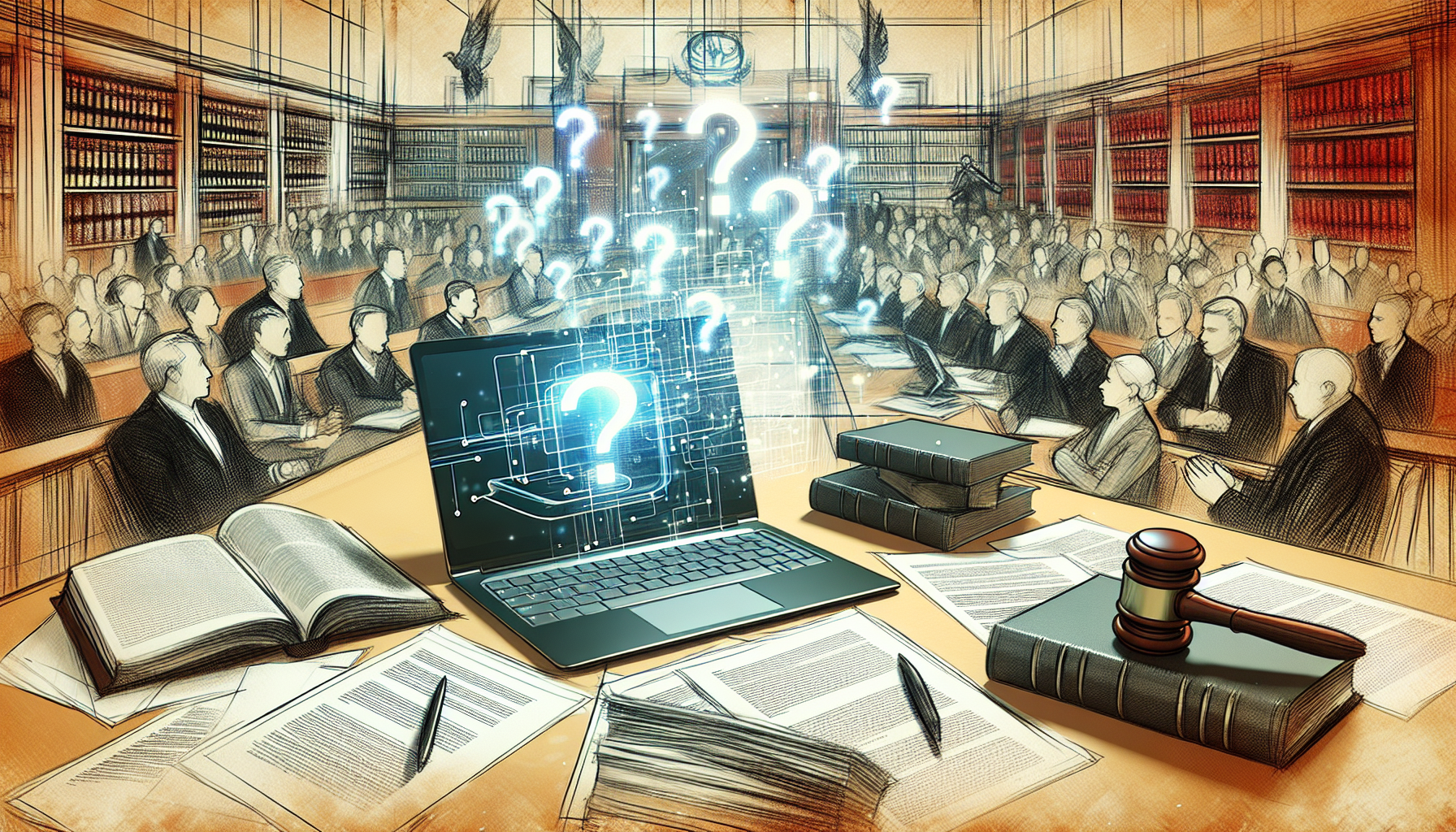
Unveiling the Power of AI in Criminal Defense
The legal landscape is rapidly evolving, with artificial intelligence (AI) playing an increasingly significant role. In criminal defense, AI tools like ChatGPT have opened new doors for legal professionals, transforming traditional practices with heightened efficiency and deeper analysis.
ChatGPT and other large language models (LLMs) are revolutionizing how paralegals approach legal research and case analysis. By leveraging AI, paralegals can now generate comprehensive insights, execute intricate searches, and simulate legal scenarios—all in significantly less time. This evolution is not merely a technological advance but a paradigm shift, enhancing the precision and breadth of criminal defense work.
Getting Started: A Paralegal’s Guide to ChatGPT
To harness the power of ChatGPT, paralegals need the right tools and accounts. Start by creating an account with OpenAI, the organization behind ChatGPT, or an equivalent platform providing access to LLMs.
Once you’re set up, the user interface of ChatGPT is designed to be intuitive. For first-time interactions:
- Familiarize Yourself: Explore the dashboard, understand primary functionalities, and check AI updates.
- Initial Practice: Engage with examples and pre-built prompts to gauge how the AI responds to various inputs.
Equipped with these basics, paralegals can immediately start leveraging AI insights, setting the stage for detailed legal analysis.
Also read:
Crafting Effective Prompts: The Heart of AI Expertise
The efficacy of ChatGPT in legal research hinges on well-crafted prompts. A nuanced understanding of how to phrase questions or information requests can significantly enhance the output.
Anatomy of a Good Prompt:
- Clarity: Ensure the question or command is clear and concise.
- Specificity: Be specific about what you need—e.g., “Summarize key legal precedents regarding assault cases in Ohio.”
- Context: Provide sufficient background information to guide the AI’s response.
Examples:
Basic: “Explain assault cases.”
Enhanced: “Explain key legal principles in assault cases under Ohio state law, with reference to recent significant case rulings.”
Mastering the art of prompt creation allows paralegals to unlock greater depth and precision in AI-generated legal research.
Also read:
Unlocking Case Insights: Investigative Techniques Using ChatGPT
With effective prompts, ChatGPT becomes an invaluable tool for extracting key facts and generating case insights swiftly.
Extracting Key Facts: Pose targeted questions to quickly identify relevant legal details—e.g., “Identify the key arguments in Doe v. Smith (2022) regarding self-defense in assault claims.”
Legal Precedents: Generate summaries and compare historical cases by instructing ChatGPT—e.g., “Compare the outcomes and legal reasoning in Assault Case A (2019) and Assault Case B (2021).”
This method enhances a paralegal’s ability to swiftly gather critical information, facilitating more informed case strategies.
Also read:
Streamlining Legal Research with AI
Advanced search techniques can significantly optimize the legal research process. ChatGPT offers methods to refine search queries for deeper insights.
Using Nuanced Queries: Employ detailed, specific prompts to extract comprehensive data—e.g., “List federal statutes relevant to self-defense in assault cases along with key interpretations in case law.”
Efficient Data Collection: Direct ChatGPT to gather and summarize legal articles, statutes, and rulings relevant to your case. For instance, “Summarize the key points from recent law review articles on the evolution of self-defense laws in assault cases.”
These techniques streamline the research process, ensuring paralegals spend less time on data collection and more on case analysis.
Also read:
Interactive Legal Analysis: Role-Playing and Scenario Simulation
ChatGPT’s capabilities extend beyond research, facilitating interactive legal analysis through role-playing and scenario simulation.
Mock Interviews and Depositions: AI-crafted scripts can simulate interactions, helping paralegals prepare effectively—e.g., “Create a mock deposition script for a witness in an assault case, focusing on establishing an alibi.”
Strategy Simulation: Use ChatGPT to develop and refine defense strategies—e.g., “Simulate a defense strategy against aggravated assault charges, emphasizing case precedents and possible legal objections.”
These tools provide a dynamic approach to legal preparation, enhancing readiness for actual court proceedings.
Also read:
Enhancing Documentation: Drafting and Reviewing Legal Documents
AI assists in creating well-structured legal documents, ensuring accuracy and coherence.
Creating Persuasive Briefs: Structure arguments efficiently with AI support—e.g., “Draft a persuasive brief arguing self-defense in an assault case, integrating relevant statutes and case law.”
Reviewing and Refining: Use ChatGPT to review and refine legal documents, ensuring clarity and completeness—e.g., “Proofread and suggest improvements for this draft motion to dismiss in an assault case.”
This ensures high-quality documentation, key to successful legal outcomes.
Also read:
Legal Ethics and AI: Navigating the Gray Areas
While AI provides immense benefits, ethical considerations are paramount.
Understanding Ethical Boundaries: Ensure compliance with legal and ethical standards—e.g., “Review ethical guidelines for using AI in legal settings and identify potential pitfalls.”
Confidentiality Concerns: Safeguard sensitive client information—ensure that all AI interactions adhere to strict confidentiality protocols, avoiding any disclosure of private data.
Stay vigilant about these considerations to maintain the integrity of legal practice while leveraging AI.
Also read:
Practical Tips to Maximize Efficiency
To maximize AI benefits:
- Automate Routine Processes: Use ChatGPT to speed up repetitive tasks, such as drafting routine correspondence.
- Stay Updated: Continuously learn about AI advancements and integrate new features for enhanced capability.
Also read:
Conclusion: Embracing the Future
In conclusion, AI tools like ChatGPT are transforming legal analysis in assault cases for paralegals, offering enhanced efficiency and deeper insights. Embrace these technologies, continually adapt, and unlock the future of criminal defense.


